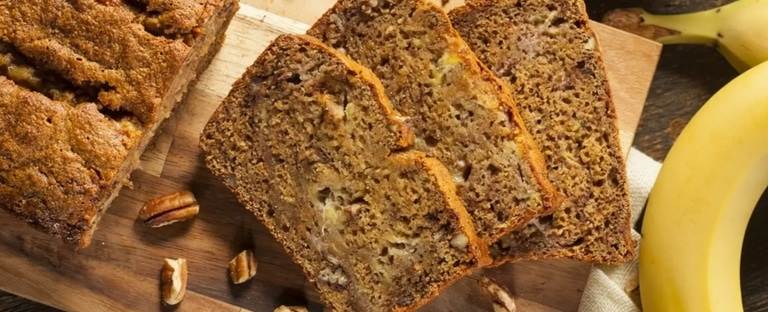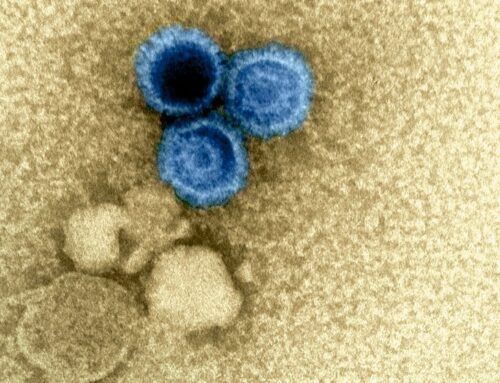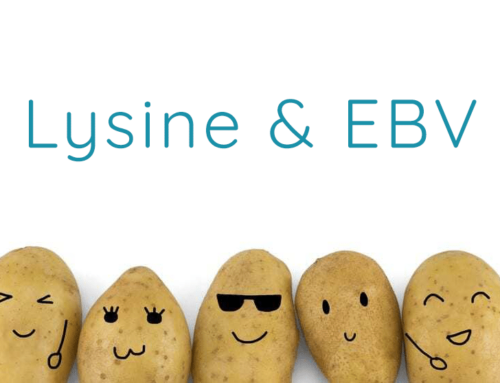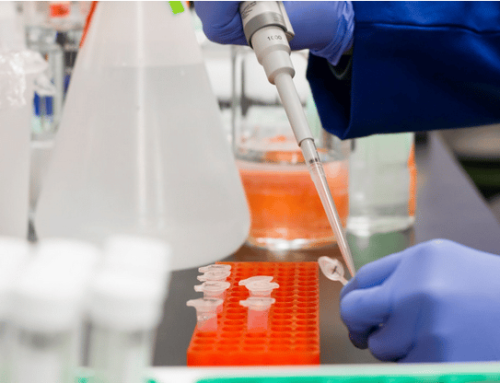If you have any chronic condition, leaky gut, or autoimmunity, you have probably read or have been told to get off gluten, a protein present in a number of grains: wheat, barley, spelt, and rye. Long story short, it is no different when you have Epstein-Barr Virus. Let’s first talk about how to approach gluten in general and what it means to your Epstein-Barr Virus in particular.
If you have EBV, getting off gluten is prudent.
Common pitfalls of the wheat you eat
There are quite a few complex issues related to commercialized wheat in general, whether you are ill or healthy. In general, the wheat we eat today has been heavily hybridized since the 1940s. What has been created is a super-grain, resistant to pests and fast growing, but with unusual qualities, such as a much higher gluten content, or a negative impact on blood sugar.
On top of that, the commercial wheat is bleached and refined – this is the form of wheat you consume in most food products. A food product of this type is, simply put, “an entertainment food product” and not a food that supports your body. It does not provide the value of minerals, vitamins, or antioxidants. It does not feed your colon the fiber needed to maintain a healthy microbiome and detoxification to keep the colon moving and colon cancer out of the way.
There are more complications to wheat. For example, this is not advertised, but wheat (along with some other crops in the US) is burned with herbicides such as Roundup (glyphosate) to improve harvesting. It is a convenient shortcut for farming but at the expense of our health.
Unfortunately, the herbicide cannot be washed off and you end up eating it along with your cookie or sandwich. In fact, Environmental Working Group, a reputable environmental watch-dog organization, has been collecting data on the alarming levels of glyphosate in children’s cereals and common hummus.
Don’t expect glyphosate to show on the “other ingredients” list. While glyphosate is the single most commonly used herbicide on the planet, it is also one of the most dangerous ones.
The herbicide disrupts the beneficial microbiome in your intestines while not disrupting opportunistic and pathogenic bacteria, and in studies, the rise in the use of this pesticide is associated with an increase in incidence of gluten intolerance.
To make things worse, wheat is a subsidized industry and therefore we have wheat galore, so it is added to a lot of food products. It may be disclosed as “gluten”, but it can also hide under various other names on the ingredient list. As a result, if you consume food products in the standard American diet, you have repeated exposure to gluten without knowing it. FYI, soy and corn follow the same pattern.
Gluten, Autoimmunity and Celiac
Gluten alone can trigger autoimmune conditions like Celiac, Hashimoto’s Thyroiditis, or leaky gut (which means permeability in your intestinal lining – which is dangerous). These autoimmunities can lead to underweight, muscle wasting, failure to thrive and can even be life threatening. Hashimoto’s, on the other hand, can lead to unexplained overweight, depression, fatigue and brain fog, and constipation, to name a few.
Celiac is an autoimmune condition you cannot outgrow, in which any minimal exposure to gluten in food or food contamination with gluten (e.g., using the same oil for frying or using the same cutting board), can trigger an autoimmune chain reaction in the body and a laundry list of related health challenges.
In fact, all you have to do is enter a bakery and breathe in the air there to possibly get triggered, if you have Celiac!
The worst part of having Celiac is that it can be life threatening. That you cannot go to just any restaurant and simply ask the waiter to remove bread. You have to seek a restaurant that has a separate kitchen dedicated to being gluten free. You cannot use the same cutting board or knife your spouse just used to slice bread. All you need is contamination with gluten of the size of a pin drop.
If you do get gluten exposure, it can trigger an autoimmune avalanche and a setback for you for a number of months.
You can imagine how popular the Nima Sensor became when it arrived on the market. With it you can go to a restaurant, order from a gluten-free menu, put a tiny piece of your meal into a capsule, drop that capsule into the tiny black Nima box and wait a little to get a reading back confirming if the food is or is not free of gluten.
How do you know if you have Celiac?
You can only develop Celiac if you have genes for it. We are born with those genes or we are not. We cannot change them. BUT…it is the epigenetics that decides if our genes get expressed or not. You COULD have a celiac gene but not express Celiac. Epigenetic simply means your environmental input: quality of water, air, food, thought patterns; your pathogens (including EBV), environmental toxins, stress…
Don’t guess. Test!
Best tests for celiac (and non-Celiac gluten or wheat sensitivities)
- Enterolab: This is a reputable direct to consumer test that can tell you if you have genes for Celiac. It is a simple swab of your cheek; the benefit of this lab is that it also shows you genes for non-celiac gluten sensitivities/intolerances. Yes, you can be as sick as a Celiac from consuming wheat without having a Celiac gene.
- Cyrex Labs: If you have Celiac, you may also have an issue with one or more of the following: corn, dairy, millet, oat, yeast, and rice. This is called cross-reactivity and can happen due to similarities in amino acid sequences in these foods also present in gluten. As a result, your immune system feels this is gluten exposure. In my experience, a person with Celiac typically has problems tolerating one or two items on this list, dairy being the most common one. The reaction can mimic gluten exposure and gluten damage. Cyrex Labs provides a blood test for antibodies to all these foods.
- Medical practice limitations: very few markers for Celiac are actually tested as standard in medical practice. Cyrex Lab has the most exhaustive list of antibodies to gluten, gliadin, and wheat. Otherwise, you can easily miss Celiac.
- Biopsy is imperfect: If you already had a biopsy and were told there was no intestinal lining damage and therefore you do not have Celiac, this is actually not a correct diagnosis and your Celiac can be missed. First, according to experts on celiac, not enough biopsies are collected – e.g. if only 2 biopsies are taken, about 50% of celiacs can be missed because intestinal damage from Celiac can be patchy. Second, endoscopy does not include the entire small intestine – endoscopy does not cover the entire ileum, the small intestine that is closest to the colon, and this is where Celiac damage often hides. Bottom line – if your biopsy is negative but you are still sick, I recommend finding a functional doctor who uses Carex Labs and ordering the Enterolab genetic test to know EXACTLY what gluten/wheat related genes you have.
You don’t have to have Celiac to get sick from wheat
Remember, you can actually have non-celiac gluten sensitivity – as I mentioned above. It is challenging to test for it and most traditional medical doctors will not have answers for you.
This is why I appreciate Enterolab.com – you can test genes for non-celiac gluten and wheat related genes. When should you do that? I would say, if you are constantly sick and have children or plan a family, you should know your genes, so you can make the best choices for you and in future for your children.
Still, the best way to see if gluten or wheat is an issue is to take two weeks off from ALL wheat and gluten products completely and watch how you feel. After the two weeks, reintroduce wheat three times a day for up to three days and watch any symptoms return (they may show up exaggerated). Then you will know.
What does gluten have to do with EBV?
Well, researchers are now telling physicians to suspect and test for chronic EBV if they have a patient with chronic illness that fails to respond to therapy or that has a chronic condition that cannot be explained, and I wish every medical doctor in clinical practice read these studies. Sadly, this is still not happening.
And what does research say about Celiac and EBV?
We have very little to work with. However, we do know that if you have Celiac and you are 100% gluten free and do not consume gluten-contaminated foods, you should start recovering from your Celiac symptoms.
We also know that Celiacs that do not respond to gluten free diets (unless there is hidden contamination or cross-reactivity we just discussed) may be suffering from hidden chronic EBV.
An interesting study analyzed Celiacs that continued experiencing mucosal damage (refractory celiac disease, or RCD) despite being on a gluten-free diet. In a group of 17 RCD and 24 uncomplicated Celiacs (UC), only 4 out of 24 UC had positive EBV antibodies (16.6%), while 12 out of 17 RCD (70.5%) were positive. When the EBV antibodies were analyzed further, an analysis of latency and replication associated proteins confirmed active infections (Perfetti, 2016).
This may mean that EBV can keep you from healing your gut from damage caused by gluten exposure. This means that for a person with Celiac, testing for EBV and treating it becomes so much more important.
It gets worse: EBV can trigger your Celiac!
Yes, there is more trouble with gluten. Remember how you have to have a gene for Celiac to get celiac? You may have that gene and not express it. But then, you reactivate EBV, and your Celiac gene turns on. Suddenly, you can no longer tolerate gluten. That happens.
A ground-breaking study from 2018 made waves in our understanding of EBV and auto-immunity. This is the first study to map out specific mechanisms in which a viral protein found in EBV-infected human cells may activate genes associated with increased risk of auto- immunity, including Celiac.
This protein, EBNA2, literally recruits human proteins called transcription factors to bind to regions of both EBV’s genome and the host cell’s own genome. Together, EBNA2 and the human transcription factors change the expression of the neighboring viral genes.
The researchers found that together, these activate some of the human genes associated with the risk of Celiac (and six other autoimmune disorders: Lupus, Multiple Sclerosis, Rheumatoid Arthritis, Inflammatory Bowel Disease (IBD), Type 1 Diabetes, and Juvenile Idiopathic Arthritis (Harley et al., 2018).
In other words, EBNA2 can enter the area in your DNA that codes for Celiac and turn that on!
That explains why I have seen odd cases of people with EBV suddenly being affected by any consumption of gluten.
Gluten creates a morphine-like effect – not a good thing!
If you have chronic illness and/or EBV, it is really quite important to exclude the genes for celiac. Here is why. Gluten can be degraded into a few morphine-like substances, which are called gluten exorphins. Exorphins produce an opioid-like effect. This could mask the ongoing damage of the gastrointestinal lining and function. In other words, gluten may “mask” its own toxicity by exorphins that are produced in the process of gluten digestion” (Pruimboom, et al., 2015). Your gut may be deteriorating as you continue to consume gluten while you may not feel that damage physically until a point where there is a lot of internal damage.
This may also indicate that gluten is addictive, just like dairy, which I discuss in more detail in the page on EBV and Foods.
Bottom line: Avoid Gluten
Who does not love the chewiness and crunchiness of a freshly baked loaf of bread. How easy it is to fall for gluten and get hooked on it.
Unfortunately, keep in mind that Celiac is a serious possibly life threatening autoimmune condition and you do NOT cheat when you have Celiac. If you have chronic EBV, please test your genes if you can. And if you lack Celiac genes, it is great news. With that, please remember that the wheat you consume today is not the wheat our ancestors cultivated.
If you did not have EBV or any chronic condition and you were not willing to give up gluten, I would ask you to only eat 100% organic spelt or 100% organic rye.
But in view of what we see, the damage gluten and commercial wheat can do to an already compromised mucosal lining of the gut, autoimmunity it is linked to, and now the new research showing that EBV can trigger celiac in a person with the gene, I would say – test your genes first but stay away from all gluten if you can!
If you do not have Celiac gene or wheat-related genes,
only seek 100% organic spelt or rye.
And if you can’t or don’t want to test, avoid gluten altogether.
We could dive much deeper into gluten here, but from the perspective of your EBV, most in our community would be quick to tell you that removal of gluten was one of the best things they have done on their way to recovery.
I do hope this blog will help you wrap your head around gluten and make the best decisions moving forward.
Resources:
Harley, J. B., Chen, X., Pujato, M., Miller, D., Maddox, A., Forney, C., . . . Weirauch, M. T. (2018). Transcription factors operate across disease loci, with EBNA2 implicated in autoimmunity. Nat Genet. doi:10.1038/s41588-018-0102-3
Perfetti, V., Baldanti, F., Lenti, M. V., Vanoli, A., Biagi, F., Gatti, M., . . . Corazza, G. R. (2016). Detection of Active Epstein-Barr Virus Infection in Duodenal Mucosa of Patients With Refractory Celiac Disease. Clin Gastroenterol Hepatol, 14(8), 1216-1220. doi:10.1016/j.cgh.2016.03.022
Pruimboom, L., & de Punder, K. (2015). The opioid effects of gluten exorphins: asymptomatic celiac disease. J Health Popul Nutr, 33, 24. doi:10.1186/s41043-015-0032-y
Environmental Working Group glyphosate links:
https://www.ewg.org/areas-focus/toxic-chemicals/glyphosate
https://www.ewg.org/research/glyphosate-hummus/
Read more about food and EBV:







Thanks for this resource!
You are welcome